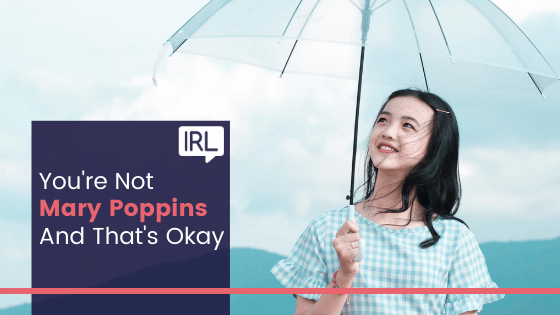The case for improved quality therapy, better relationships with clients, and a personal sense of pride and integrity in our work.
My good friend, Melanie, had a new year’s resolution a few years back to do something each month she was “bad at.” It reminded me of a recent beach volleyball game I’d reluctantly participated in. In the game I’d missed every pass and then got slammed in the head by the ball right when the game was over. I thought, “Why put herself through that?”
This past year has been one of vulnerability for me, moving to a new state and taking up the responsibilities as Director of speech IRL West. This, of course, was all during COVID, while still experimenting with the newness of motherhood. I have surely made mistakes (“sorry, I meant 2:00 pm PST, not CST”), been wrong (insurance codes are tricky), and struggled through the process (you cannot guarantee toddler naps!). And I have found a more authentic way of connecting with my clients on the journey.
Whenever I use mindfulness with a client, it is to explore the thoughts and feelings that are holding them back from their communication progress and from living a more fulfilled life. Far more often than not, a regular feeling we identify is one of defensiveness and fear- the fear of making a mistake, of not appearing to have it all together, of not having all the answers. Now I’m sure all of us relate to the feeling of inadequacy. Yet ask yourself, “when was the last time I openly and readily admitted to a mistake?” If a client only sees us as Mary Poppins, “practically perfect in every way,” how can we expect them to demonstrate vulnerability in the exercises and discussions we bring forth?
I coached a public speaking client recently who seemed very hesitant about the whole mindfulness thing. And woof did I feel vulnerable. All those self-doubt thoughts of “am I really good at this?” and “maybe I should have tried a different approach” came through with full force. At the end of the session, she had demonstrated a more active engagement in the mindfulness process and was asking me about the long term effects. I decided to let her in on my secret, “I was very uncomfortable with the start of our session, I was doubting my abilities and second guessing my approach. I used mindfulness to allow my thoughts and feelings to not control the outcome. Could you tell?” She was shocked that I had felt that way at all and grateful that I was so honest with her. The transparency or vulnerability of the moment helped facilitate a relationship of trust with my client. But more than this valuable rapport, it was also a very accurate model that I am not perfect, that perception can be faulty, and that strength does not lie in perfection.
Perhaps what we need as clinicians is to demonstrate and experience a little more of this vulnerability, of being open and willing to try things when we do not feel super secure. After all, we ask this from our clients every day!
How can clinicians facilitate a lifestyle of vulnerability?
- Once you’ve mastered something, try something new, something you aren’t good at! This can be administrative, behavioral, counseling-related, or technical.
- Notice your reaction when someone questions your methods or you notice your own mistakes. Notice without judgement. Just. Notice.
- Take on student clinicians! This is one of my favorites… it forces you to be honest with yourself (do I have a good rationale for what I’m doing). It also opens opportunities for your work to be questioned, and it gives you a new perspective, helping you break out of a static clinical flow.
- Be supportive of others’ mistakes (your clients AND your colleagues). Let them make mistakes in front of you without judgment.
2021 is sure to be a year of mistakes for me, as a mommypreneur of (almost) two kids! But the year doesn’t have to be perfect to be fruitful and fulfilling.

